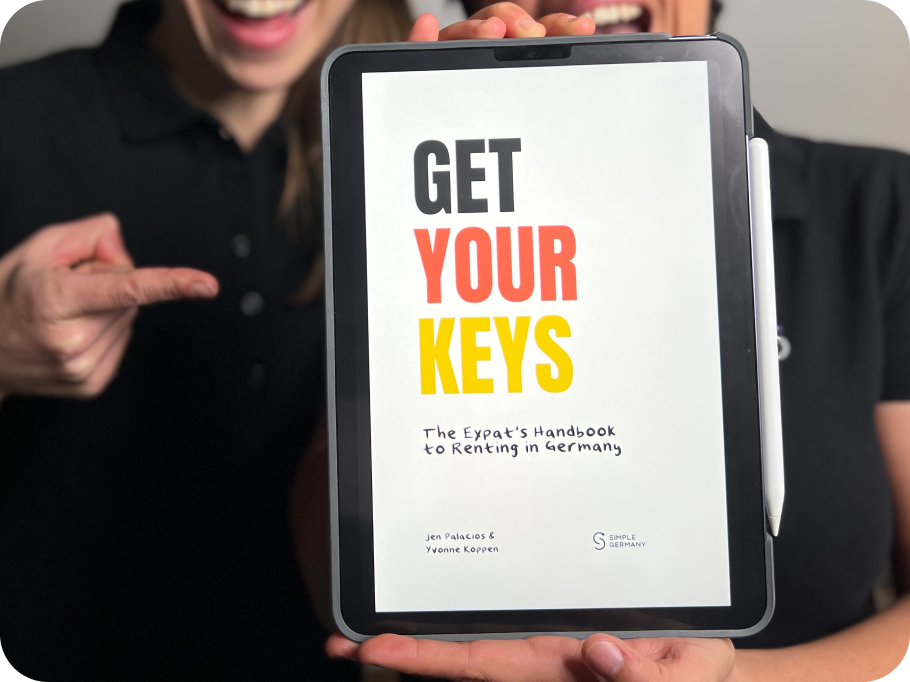You’re right! There is a lot of free content out there. One of our most successful videos on YouTube and a guide on our website is on how to rent an apartment. However, all the free content is scattered all over the internet, and even we can’t go into every single detail in individual content pieces.
With ‘Get Your Keys’, you will find all the information you need to know about apartment searching and renting in Germany concisely in one place! Not only will you get a 105-page eBook but also over-the-shoulder videos, templates, and translated documents.
So you can either spend hours online searching for all the information and trying to put it together. Or you can save yourself that energy and time and simply read and follow ‘Get Your Keys’.



